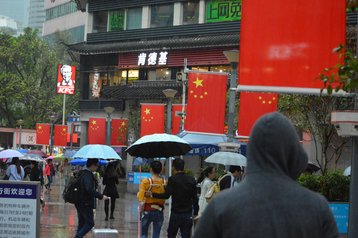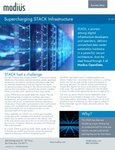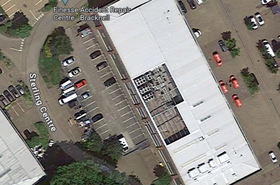Taiwan should adopt a ‘scorched earth policy’ and wipe out its own semiconductor foundries in the wake of any Chinese invasion as a deterrent, US military academics have suggested.
First spotted by Nikkei, a paper in the US Army War College’s quarterly academic journal Parameters suggests the US and Taiwan can deter a Chinese invasion of the island by creating a ‘deterrence by punishment approach via a legitimate and credible threat' to destroy the country’s own chip fabs if invaded.
The authors argue that in the face of China’s growing military power & sophistication, threats or demonstrations from US military are unlikely to work, and any actual conflict on the island may actually be won by the People’s Republic of China.
Instead, the paper, Broken Nest: Deterring China from Invading Taiwan, suggests a “broken nest” approach wherein Taiwan destroys its own semiconductor industry – including global chip powerhouse TSMC – upon the news of any invasion from China to make it a less attractive target and scupper China’s own technology ambitions.
Such a move (and making such a policy clear to would-be invaders) would be a way to potentially deter aggressors without threatening direct conflict and could potentially be more of a deterrent than the threat of (or actually engaging in) open war.
“The United States and Taiwan should lay plans for a targeted scorched-earth strategy that would render Taiwan not just unattractive if ever seized by force, but positively costly to maintain,” according to the paper. “This could be done most effectively by threatening to destroy facilities belonging to the Taiwan Semiconductor Manufacturing Company, the most important chipmaker in the world and China’s most important supplier.”
The paper suggests the US and Taiwan should develop a joint strategy of “deterrence by punishment” so that even though Taiwan might be conquerable in the short term, its capture would trigger “unacceptable economic, political, and strategic costs upon Beijing.”
Destroying the local semiconductor sector would ‘immobilize China’s high tech industry at precisely the same time the nation was embroiled in a massive war effort’. And so as to make such a scenario credible, the authors suggest developing an ‘automatic mechanism’ triggered once an invasion was confirmed to make the threat more credible.
“If done correctly, such a strategy could discourage a Chinese invasion of Taiwan while simultaneously lessening the chances of an unwanted great-power conflict.”
The paper was written by Jared M. McKinney and Peter Harris; Dr. McKinney is the chair of the Department of Strategy and Security Studies at the eSchool of Graduate Professional Military Education, Air University, and reviews editor of the Journal of Indo-Pacific Affairs. Dr. Peter Harris is an associate professor of political science at Colorado State University and Indo-Pacific Perspectives editor of the Journal of Indo-Pacific Affairs.
On Dec. 23, the website of the Chinese State Council's Taiwan Affairs Office posted an article noting that "the mainland's pursuit of cross-strait reunification is definitely not for TSMC."
Taiwan, officially the Republic of China (ROC), has been independent of mainland China since the Chinese Communist Party ousted Chiang Kai-shek and his nationalist government in 1949. The PRC operates under its One China Policy and sees Taiwan as part of its territory; the ROC would also like reunification, but not under communist rule.
The US has blacklisted a number of Chinese technology firms in attempts to stymie the country’s ambitions. In recent years it has added a number of HPC, Quantum, telco, chipmakers, and server manufacturers to its Entity lists, meaning US firms (and firms using US technology) can’t do business with those companies. China is working hard to boost its domestic chip production in the face of the sanctions.






